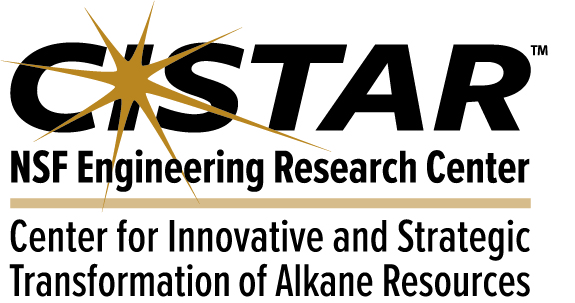CISTAR First-Generation College Students
As part of the third First-generation College Celebration— we interviewed three CISTAR first-generation graduates for their perspective on their experience:
View CISTAR's First-Gen Interview Series

...a CISTAR faculty member: Dr. Tobin Marks, who is Thrust 3 Lead in CISTAR, the Charles E. and Emma H. Morrison Professor of Chemistry, Professor of Material Science and Engineering, and the Vladimir N. Ipatieff Professor of Catalytic Chemistry at Northwestern University. He graduated with his first degree in 1966 from the University of Maryland.

…a CISTAR graduate fellow: Edwin Rodriguez, who is a graduate student working with Professor Agrawal in Thrust 4 at Purdue University. He graduated with his first degree in 2018 from the National University of Colombia.

…a CISTAR staff member: Brittany Bright, who is our CISTAR Communications Specialist since January of 2018. She graduated with her first degree in 2008 from Ball State University.
First, we want to point out that while first-generation students are more likely to have some common characteristics in comparison to continuing-generation students, that does not mean they necessarily have them; there is quite a lot of heterogeneity in the group. To better understand, here are some comparisons[1] that might interest you between first-generation and continuing-generation college students:
[1] RTI International (2019). First-generation college students: Demographic characteristics and postsecondary enrollment. Washington, DC: NASPA. Retrieved from http://firstgen.naspa.org/files/dmfile/FactSheet-01.pdf.
Second, there are some common themes about how first-generation students experience college, with one of the most common being that they initially feel more “lost” and out of place. One reason is that parents of first-generation students don’t have any experience with college; they lack “cultural capital” to support and help their child. This leads to transitions to college for first-generation students that are more confusing, stressful, and difficult to navigate. A good analogy is:
“They may feel like frontier explorers who have entered a complex wilderness, equipped with their belongings and a lot of good wishes behind them but largely on their own.”[1]
On the other hand, as you’ll hear next month in the video excerpts, some first-generation individuals have relatives or cousins that filled in the gaps, making up for the lack of parental cultural capital. Or, if they were a first-generation student in the 1960’s—when fewer than 10% of people in the U.S. graduated from college versus approx. 35% now—it was much more common not to have parental “cultural capital,” and so it felt less starkly.
Third, what is important is intersectionality– how additional groups the individual belongs to, as well as other circumstances about their life, can compound (like being from a poor background), or ameliorate (like being middle class), some of the challenges of being first-generation college. Now, let’s take a closer look at first-generation students living during the COVID outbreak.
Being a First-Generation Student Now
This past spring semester the global pandemic changed everyone’s lives. It was challenging, stressful for all, but there were extra challenges faced by first-generation students. In a recent study of over 28,000 students,[2] as compared to continuing-generation students, first-generation students during COVID experienced:
- More financial hardships (i.e., lost wages from on-campus employment; family loss of wages) leading them to be twice as concerned about paying for their college in fall 2020;
- More challenges with online learning (i.e., affording and accessing technology);
- More un-met basic security needs (i.e., a safe environment, adequate food, housing security); and,
- More disruptions of one’s ability to study (i.e., finding an adequate learning space, increased responsibilities for family/child care).
Many faculty, staff, and students were incredibly proactive and tried to make a difference, but it was an overwhelming task, and we are just beginning to see the fall-out from spring on performance and retention rates for first-generation students.
Please help us keep the success story going for our first-generation students! Be supportive if you are teaching or mentoring students, and try to be flexible, supportive, and accessible if they need some type of accommodation because of their situation.
We hope that in celebration of the 4th National Generation College Celebration on November 8, you will enjoy listening and learning to Dr. Tobin Marks, Edwin Rodriguez, and Brittany Bright as they share their thoughts and experiences about having been first-generation college students.
To learn more, visit the Center for First-Generation Student Success for programs and services, research and policy, news and blog updates, and more at: https://firstgen.naspa.org/about-the-center.
CISTAR'S FIRST-GENERATION COLLEGE STUDENTS INTERVIEW SERIES
PART ONE:
We ask why it was important for them to go to college and what kept them going once they got there.
Part two:
We ask if they had any financial concerns while attending college and inquire if they ever had imposter syndrome.
Part Three:
In our final installment of the video series, we ask our first-generation graduates what advice they have for fellow first-gen students.
[1] Terenzini, P.T., Springer, L., Yaeger, P.M. et al. First-generation college students: Characteristics, experiences, and cognitive development. Res High Educ 37, 1–22 (1996). https://doi.org/10.1007/BF01680039.
[2] Soria, K. M., Horgos, B, Chirikov, I., & Jones-White, D. (2020). First-Generation Students’ Experiences During the COVID-19 Pandemic. Student Experience in the Research University (SERU) Consortium. Retrieved from the University of Minnesota Digital Conservancy, http://hdl.handle.net/11299/214934.






